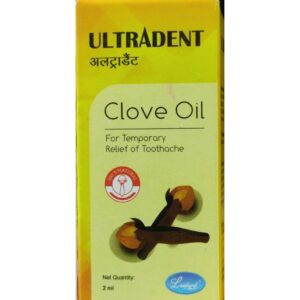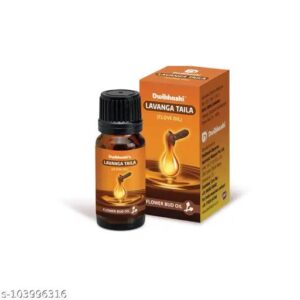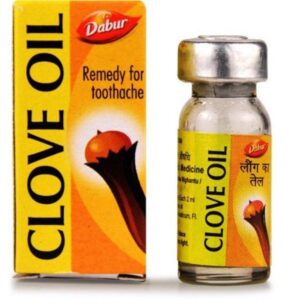CLOVE OIL
CLOVE OIL: Clove oil, also known as Eugenol, is a natural oil extracted from the dried flower buds of Eugenia caryophyllata, a type of evergreen tree native to Indonesia. It has a strong aroma and a warm, spicy taste.
Clove oil has various uses, primarily in dentistry and as a topical analgesic. In dentistry, it is commonly used as a local anesthetic to provide temporary relief from toothache and gum pain. It can also be used in oral healthcare products such as mouthwashes and toothpaste due to its antimicrobial properties. Additionally, clove oil is used topically for relieving muscle and joint pain, as well as for treating fungal infections such as athlete’s foot and nail fungus.
The main active ingredient in clove oil is eugenol, which acts as a natural anesthetic and analgesic. Eugenol has the ability to block nerve impulses, providing temporary pain relief. It also has antimicrobial and antifungal properties, making it effective against certain microorganisms.
The dose of clove oil varies depending on the specific use. For toothache relief, a small amount can be applied topically using a cotton swab. When using clove oil for oral health, it is commonly diluted in water as a mouthwash or added to toothpaste. Topically, it can be applied directly to the affected area, either alone or diluted in a carrier oil.
While generally safe when used in appropriate amounts, clove oil can have some side effects. It may cause irritation or an allergic reaction in some individuals, especially when applied topically. Ingesting large amounts of clove oil can also be toxic and should be avoided. Furthermore, it may interact with certain medications, so it is recommended to consult with a healthcare professional before using it, particularly if you have any underlying medical conditions or are taking any medications.



